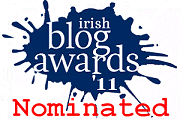Following the successful original 1980 production and subsequent tour of Translations by Field Day Theatre Company, Tom Paulin stated afterwards in 1983:
“The history of language is a story of possession and dispossession, territorial struggle and the establishment or imposition of a culture.”
Few plays and fewer playwrights have stirred the question of’ Irishness’ and nationhood as much as Translations by Brian Friel. Since it was staged all of thirty years ago, the first production of the fledgling Field Day Theatre Company, it has become synonymous with the Irish obsession with language, connection to home and to the landscape in which that home is situated.
Translations was written in the shadow and direct backdrop of the Northern Ireland Troubles. Friel, himself a Derry-born Catholic, experienced life on the front-line of this turbulent and bloody time. The political nature of Translations has perhaps taken on a life of its own outside of its intended level of intervention. Friel has often set on record that Translations is not a political play but is only about language. While Friel may have chosen to defuse the situation and down play the political and Nationalist fervour the play has come to be associated with, this is not so readily achievable.
It was unthinkable for many in 1980 to foresee an Ireland that would have later see a Downing Street Declaration, a Good Friday Agreement, a power-sharing executive. Now, thirty years since Translations was premiered by Field Day Theatre Company in the imposing Guild Hall in Derry, for so many it is unthinkable how very real the fear, violence and sectarianism was in the North. Today’sIreland is one more attuned to peace but still tragically not immune to violence. The murder of RIC Constable Ronan Kerr and British army soldiers at Mesereence Barracks have provoked an outpouring and committed resolve for peace in the face of those deluded few who insist on failed violent means.
Translations tackled the question of language like no other play in Irish theatre. Friel recognised that while land and connection to home, wherever that may be, can actually be superseded by a truer from of identity: how we express and communicate. While the threat of violence, eviction and also references to the Great Famine hung over the village of Ballybeg, the idea of knowing one’s identity and place through words rather than physical landscape is the true essence and beauty of this play. As Manus taunts his father Hugh following the ‘standardisation’ of the local place-names, he says: “Will you be able to find your way?”
Friel’s contribution to the identity question surrounding ‘Irishness’ on both sides of the border has been explored in depth in Translations but also in his other ‘language’ plays – Making History and Faith Healer. Friel’s use of the colloquial and local dialogue and speech creates entirely real worlds where his characters are reflections of the society and place that has shaped them. Many similarities along this point can be also be seen in the work of playwright Billy Roche, who has become as synonymous with finding a connection to the thoughts and language of the people of his native Wexford as Friel found with people in the North of Ireland.
If by Fintan O’Toole’s definition of a ‘Powerplay’ – a work being political, challenging and reflective of society and identity, then perhaps Translations is the ‘Powerplay’. It is also crucial to consider, is it just a powerplay of it’s own time? And can it still carry such an impact on today’s audiences as it did in 1980’s Derry? Translations does still have much to offer contemporary Ireland. Earlier this year, the visit by Queen Elizabeth II allowed for a mass re-evaluation of the colonial relationship between Ireland and Great Britain. Our own ability to recognise this visit as one head of state visiting a global equal as opposed to a colonial satellite was key to the mature and considered welcome Queen Elizabeth received. Recent revisions of works such as the Playboy of the Western World in a version by Roddy Doyle and Bisi Adigan put that classic story on a modern footing in contemporary Dublin and explored how immigration was shaping Ireland and the actions, thoughts and words of its people. Also works by The Company, including Who is Fergus Kilpatrick and As You Are Now So Once Were We, go to new levels in exploring questions of connection to place, city, country and the individual. The Company took this challenge to completely new territory, moving outside of the traditional literary text and engaged technologies, forms and ideas that turn the questions of place and language on its axis.
Translations will rightly be a classic of it’s time and also any time. Its original staging in the Guild Hall in Derry will be remembered as being one the most powerful symbols of how theatre can reflect and present society as well as crossing boundaries that traditional communication cannot. It is a fantastic opportunity to see the powerplay once again on the national stage. It also affords us the opportunity to consider the next generation of powerplays and guess at where they will come from and what they will focus on. As Hugh says in the closing scenes of Translations; “We must never cease renewing those images; because when we do, we fossilise.”
Translations is on the Abbey Theatre Stage until Saturday 13th August. www.abbeytheatre.ie









